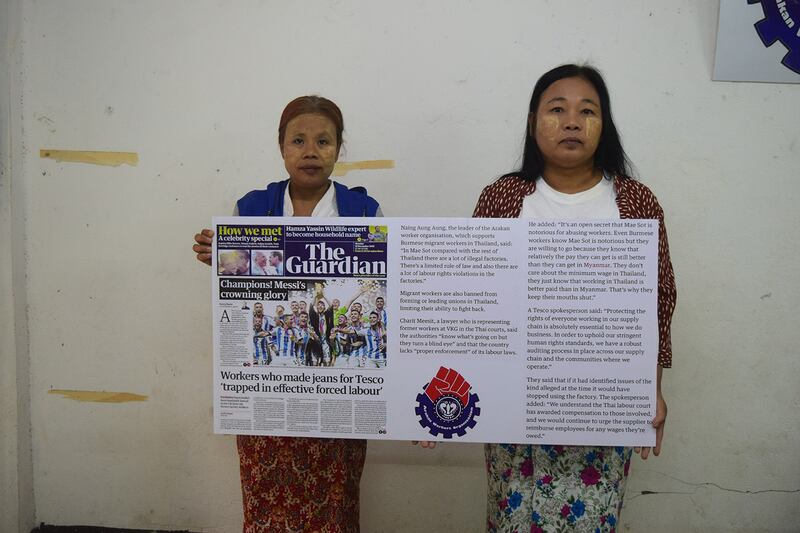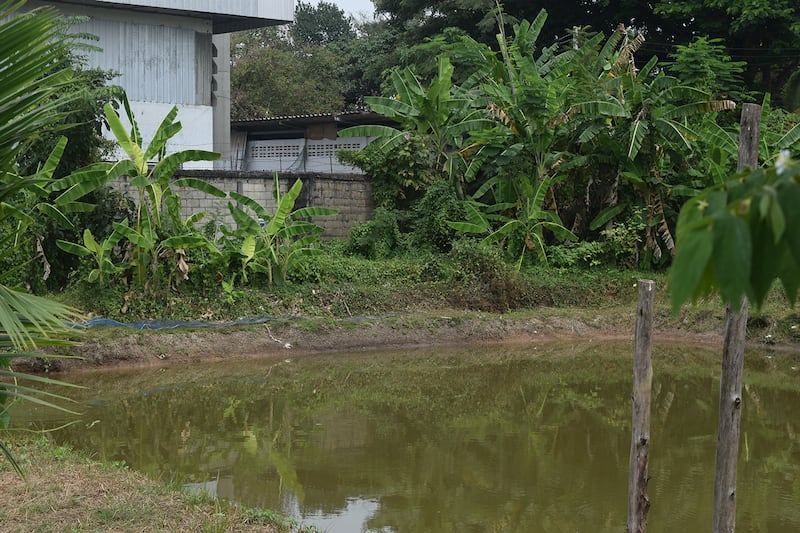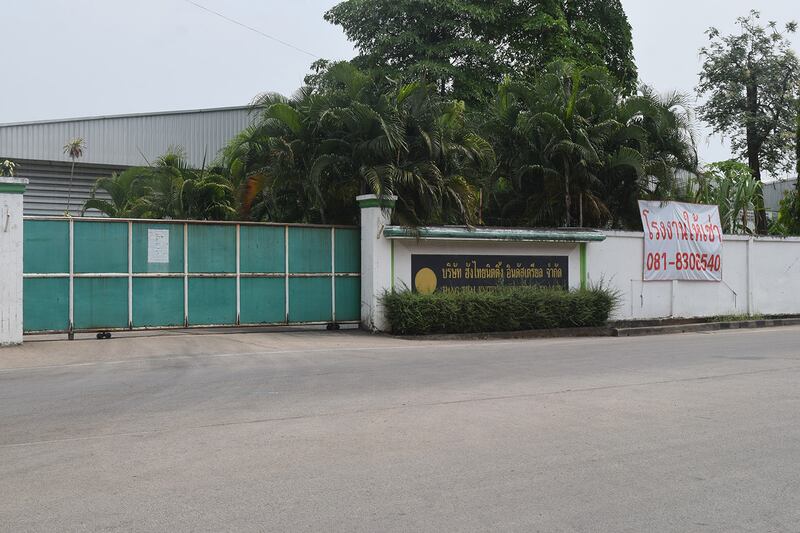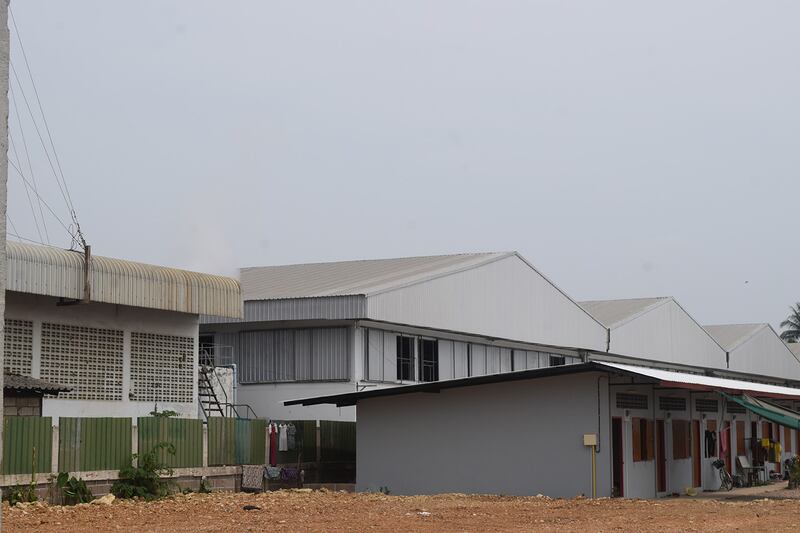When Phyu Phyu Mar from Myanmar got a job at VK Garments in 2017, she had plans to one day open her own small business.
Located in Mae Sot, a town straddling the Thai-Myanmar border, the factory appeared to be a promising employer, especially because it was a supplier for the British retail giant Tesco. Yet, Phyu’s dreams quickly dissolved into disillusionment.
Despite the initial optimism, Phyu Phyu Mar and 135 of her colleagues found themselves embroiled in a struggle against debt, job insecurity and the loss of their legal status in Thailand after being laid off in 2020.
Their termination by the management of VK Garments came as a direct result of their complaints about labor violations and demands for rightful wages. Although they sought justice through the legal system and were partially compensated in October 2020, the awarded sum fell significantly short of their claims.
Now, years later, the repercussions of their stand for fair treatment continue to profoundly affect their lives, and the hope for resolution hinges on two court cases, one local and one international, which they hope will conclude their protracted ordeal.

In January, employees lodged an appeal against VK Garments with Thailand’s Supreme Court, seeking 34 million baht (U.S. $946,000) for unpaid overtime and severance.
According to the case’s lawyer, Charit Meesidhi, the labor inspector reviewing evidence for the prior court case failed to collect appropriate evidence like pay documentation and interviews that would have allowed Phyu Phyu Mar and her co-workers to prove their case.
But Charit remains cautious about the prospects of the new case as well.
“According to the legal requirements, the chance to convince the Supreme Court to review the case is extremely difficult,” the lawyer said. “This is subject exclusively to the authority of the Supreme Court and in most cases, it does not accept to review the case.”
Workers have also not seen a cent of the earnings they say they’re owed because the amount is disputed by all parties in the Thai court cases, causing many to take on increasing debt, work low-paid jobs and become illegal migrants in their adopted homeland.

Khin Mar Aye, another former VK Garments employee, said she was reduced to taking agricultural jobs that pay as low as 36 baht ($1) a day.
“At that time, we didn’t have any income for our survival. We had to go to the plantation and we had to work at the onion field,” she said. “For one kilogram of onions, we receive eight baht (22 U.S. cents). We don’t always have this work, maybe 15 or 20 days in a month. We’ve been doing this kind of work until now.”
UK case
In the United Kingdom’s high court, the workers filed a lawsuit on Dec. 18, 2022 against Tesco, its former Thai subsidiary Ek-Chai Distribution Systems, auditor Intertek Group PLC and Intertek Testing Services Limited, all linked to alleged labor violations stemming from VK Garments, for negligence.
Despite manufacturing jeans for the U.K.-based Tesco Group intended for distribution in Thailand, workers earned a mere 2,000 baht ($55) per month, according to former employees.
They often struggled to receive even this modest amount as management deducted charges for accommodation in worker dormitories, legal work documents they often did not receive and other unexplained fees, significantly reducing their actual take-home pay.
Workers have also made other allegations of enduring near 100-hour work weeks, unsafe housing that led to the rape of an employee’s child and being forced to purchase other equipment, like lightbulbs, to sew at their stations after dark.
Phyu Phyu Mar said workers had to use a lake in front of the factory for water and that accommodation and bathrooms were unsafe and filthy.
“I think almost all the workers who are working inside the factory feel like they’re going to prison every day, not a workplace,” she said.
“Mae Sot doesn’t have industrial zones, it has refugee camps. We are all refugees in this situation.”

A spokesperson for Tesco told Radio Free Asia that they “continue to urge the supplier to reimburse employees for any wages they’re owed.”
“The allegations highlighted in this report are incredibly serious, and had we identified issues like this at the time they took place, we would have ended our relationship with this supplier immediately,” the spokesperson said in a written statement.
VK Garments declined to comment.
Waiting game
Khin Mar Aye and Phyu Phyu Mar have seen their debt burgeon during their prolonged wait.
Initially incurred at VK Garments, their financial obligations have escalated to 50,000 ($1,413) and 100,000 baht ($2,823) respectively, due to borrowing from the factory and other lenders at steep interest rates of up to 20%.
This was a desperate measure to cover the basic necessities of food and shelter for their families.

Whether or not they will see a resolution soon remains to be seen.
Given the complexity of the case, the case’s stakeholders were made aware that the process could take years, said Priscilla Dudhia, public outreach coordinator for Clean Clothes Campaign.
The group has been involved in the workers’ case since it was flagged in 2020, and it, involving other non-profits, connected workers to Leigh Day, their legal representation in the U.K.
“Our hope has always been that Tesco and Intertek come to the table and agree to fully compensate the workers for the harms that they’ve suffered,” she said. “One of the big reasons for this is because this claim was issued in 2021 – we’re in 2024, and we’re still not in a position where all the defendants have been served.”
Despite facing harassment by factory staff about the ongoing case, Phyu Phyu Mar says she hopes this will be an example for employers in Thailand.
“I want justice and fairness from that case,” she said. “We had to work very strenuously in the factory, but we faced a lot of violations of our rights and entitlement. This case should be kind of a lesson for the employer, the employer needs to face these kinds of things.”
Radio Free Asia (RFA), a news organization affiliated with BenarNews, produced this report.
